
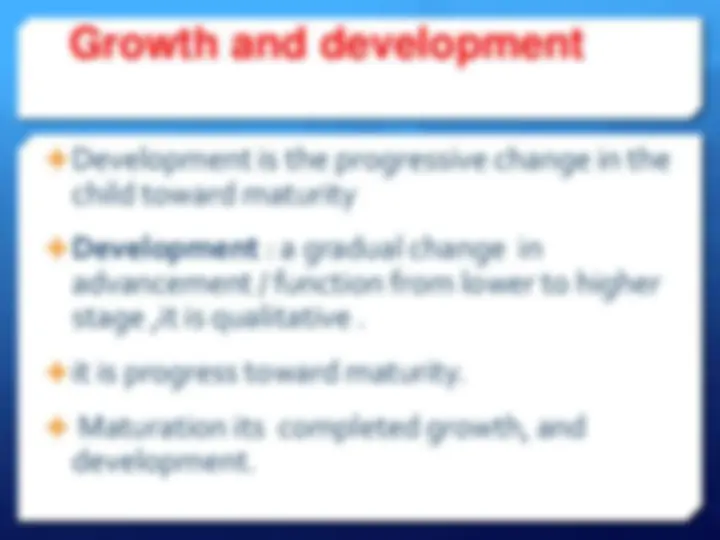
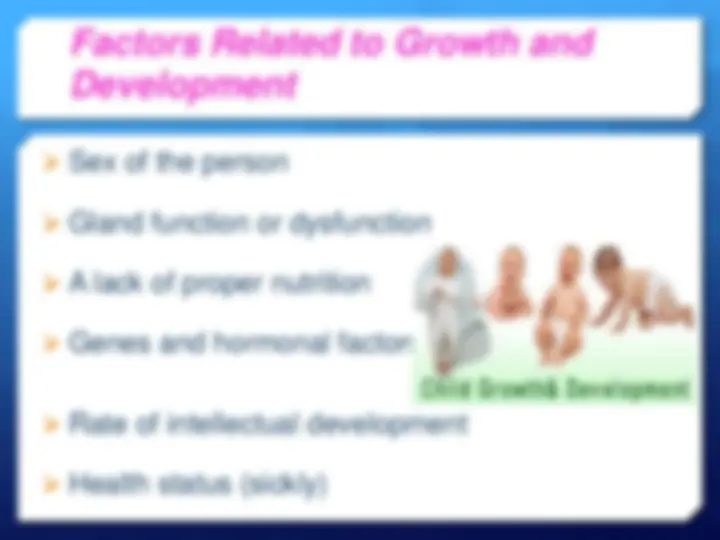
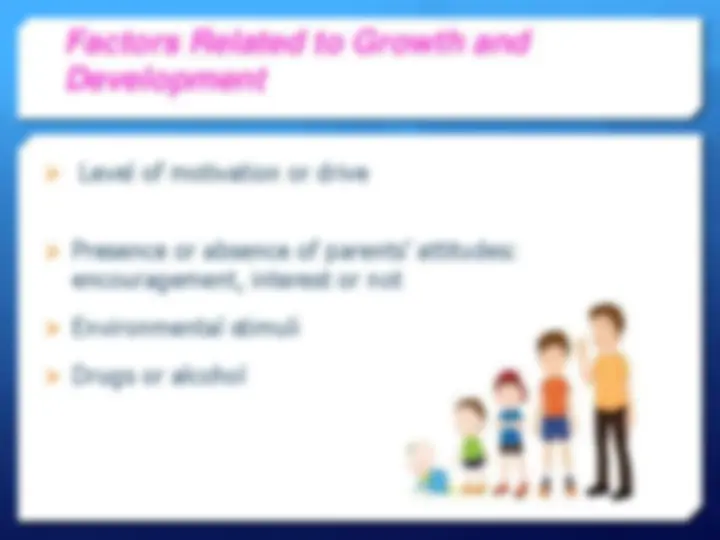
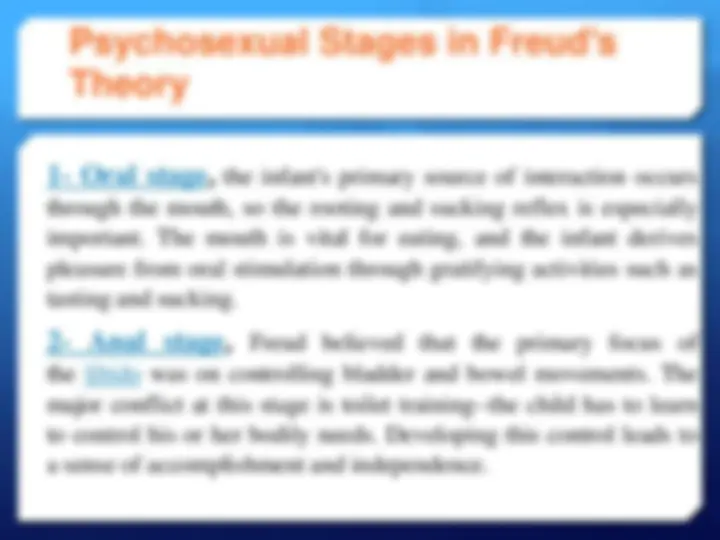
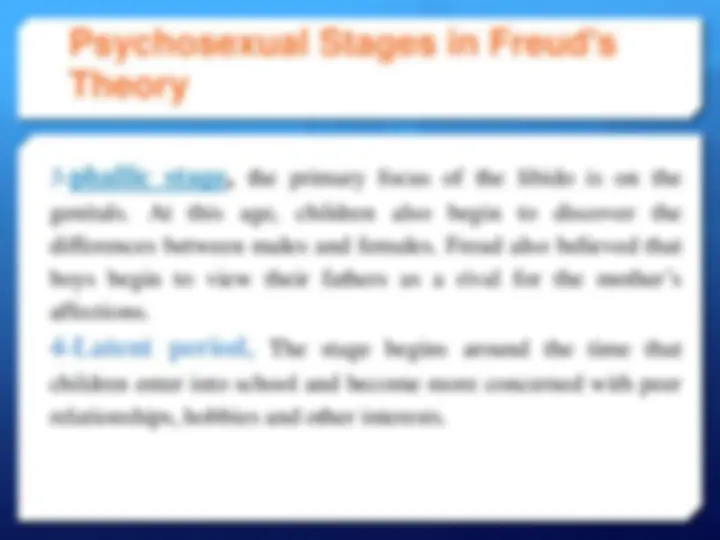
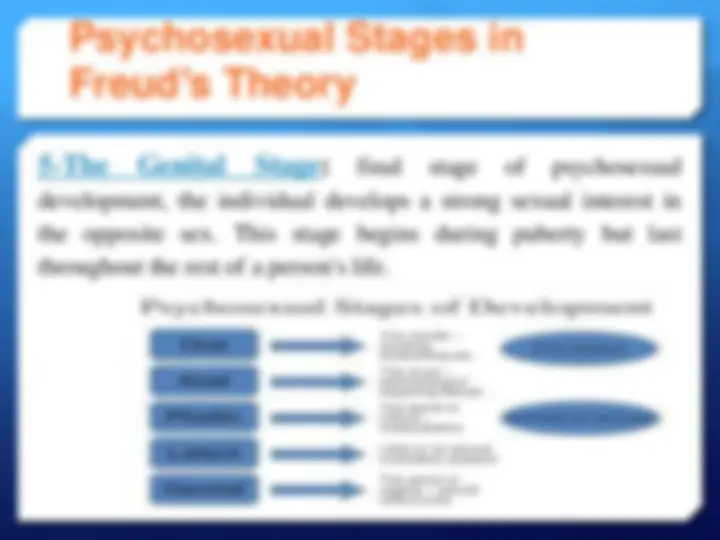
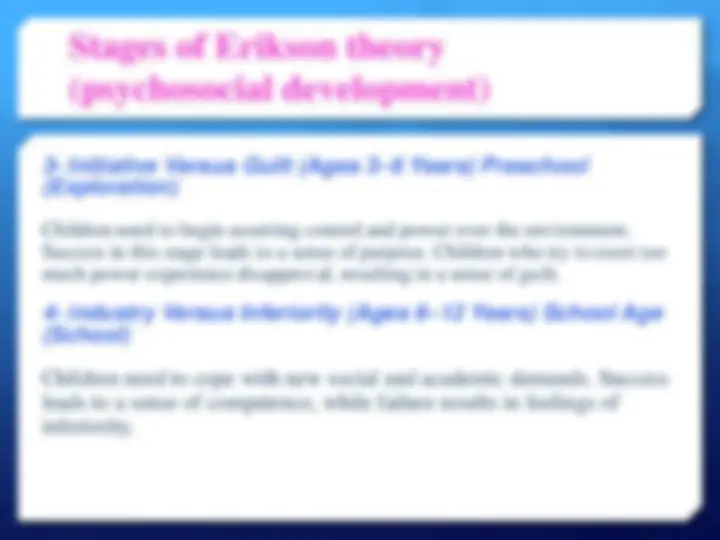
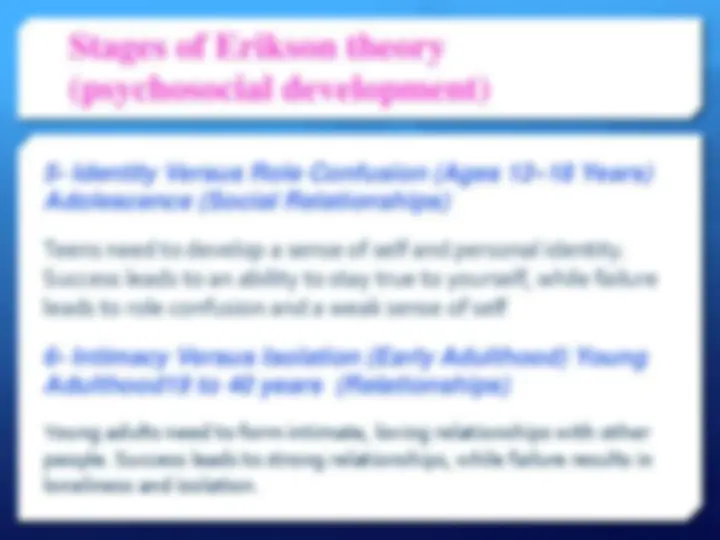
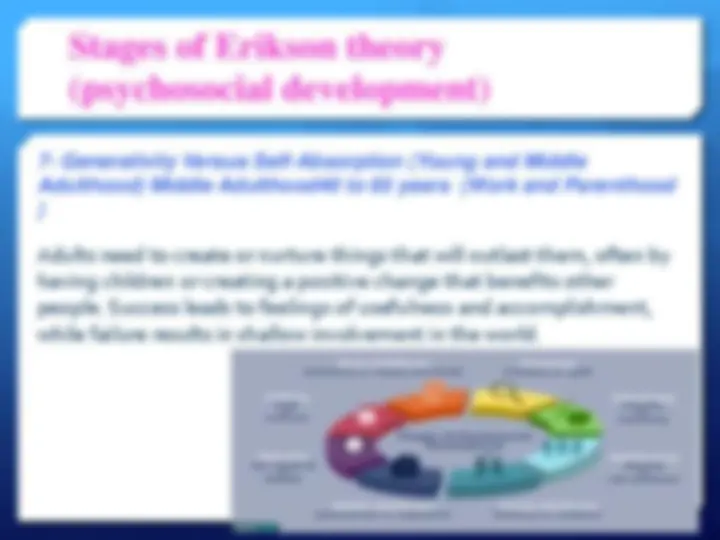
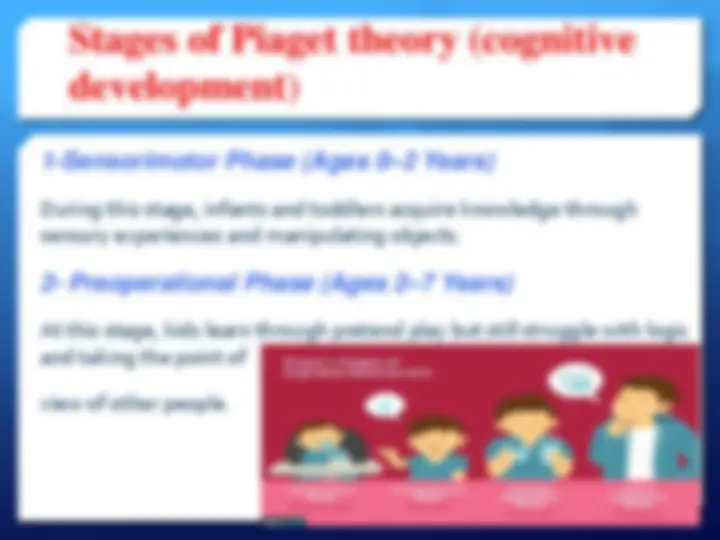
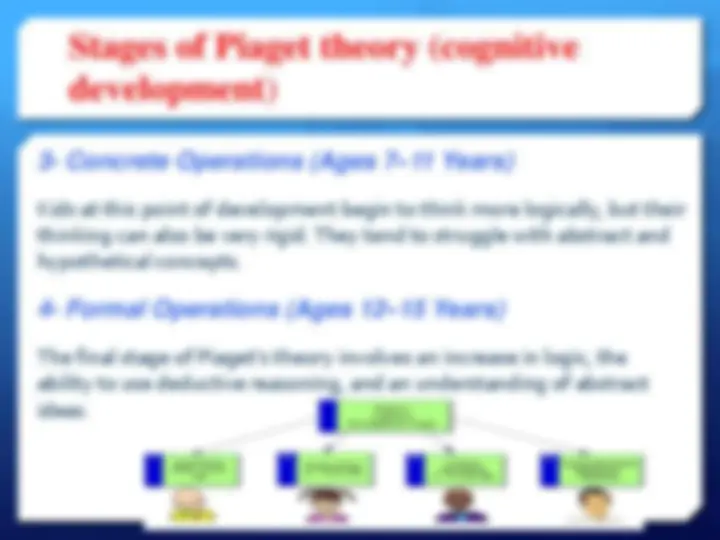

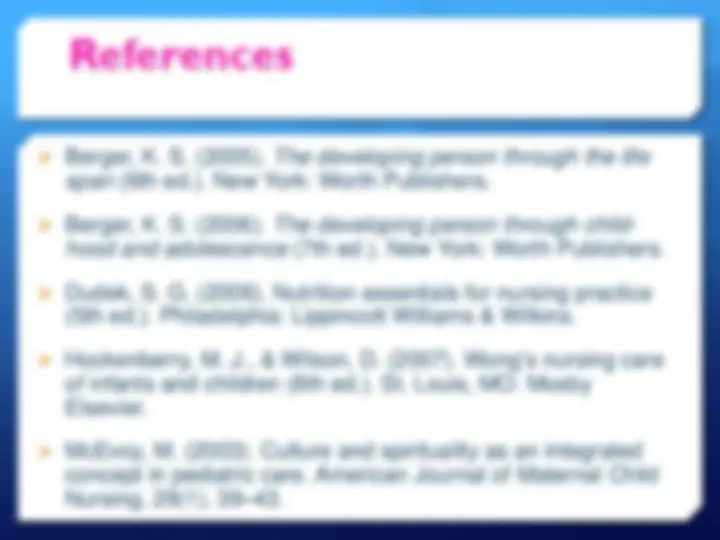


Study with the several resources on Docsity

Earn points by helping other students or get them with a premium plan


Prepare for your exams
Study with the several resources on Docsity

Earn points to download
Earn points by helping other students or get them with a premium plan
Community
Ask the community for help and clear up your study doubts
Discover the best universities in your country according to Docsity users
Free resources
Download our free guides on studying techniques, anxiety management strategies, and thesis advice from Docsity tutors
An overview of human growth and development theories, focusing on the works of Sigmund Freud (psychosexual development), Erik Erikson (psychosocial development), and Jean Piaget (cognitive development). the concepts of growth, development, factors influencing growth and development, and the stages of each theorist's developmental theory.
Typology: Study notes
1 / 21

This page cannot be seen from the preview
Don't miss anything!














Factors Related to Growth and Development
Level of motivation or drive Presence or absence of parents’ attitudes: encouragement, interest or not Environmental stimuli Drugs or alcohol
Freud theory (psychosexual development) Freud described three levels of consciousness: the id, which controls physical need and instincts of the body; the ego, the conscious self, which controls the pleasure principle of the id by delaying the instincts until an appropriate time; and the superego, the conscience or parental value system. The superego is the part of personality that holds all of the internalized morals and standards that we acquire from our parents, family and society
Psychosexual Stages in Freud’s Theory
through the mouth, so the rooting and sucking reflex is especially important. The mouth is vital for eating, and the infant derives pleasure from oral stimulation through gratifying activities such as tasting and sucking.
the libido was on controlling bladder and bowel movements. The major conflict at this stage is toilet training--the child has to learn to control his or her bodily needs. Developing this control leads to a sense of accomplishment and independence.
Psychosexual Stages in Freud’s Theory
development, the individual develops a strong sexual interest in the opposite sex. This stage begins during puberty but last throughout the rest of a person's life.
Erikson theory (psychosocial development) Erik Erikson's theory of psychosocial development is believed that personality develops in a series of stages. Erikson's theory describes the impact of social experience across the whole life-span. One of the main elements of Erikson's psychosocial stage theory is the development of ego identity.
Stages of Erikson theory (psychosocial development) 3 - Initiative Versus Guilt (Ages 3 – 6 Years) Preschool (Exploration) Children need to begin asserting control and power over the environment. Success in this stage leads to a sense of purpose. Children who try to exert too much power experience disapproval, resulting in a sense of guilt. 4 - industry Versus Inferiority (Ages 6 – 12 Years) School Age (School) Children need to cope with new social and academic demands. Success leads to a sense of competence, while failure results in feelings of inferiority.
Stages of Erikson theory (psychosocial development) 5 - Identity Versus Role Confusion (Ages 12 – 18 Years) Adolescence (Social Relationships) Teens need to develop a sense of self and personal identity. Success leads to an ability to stay true to yourself, while failure leads to role confusion and a weak sense of self 6 - Intimacy Versus Isolation (Early Adulthood) Young Adulthood 19 to 40 years (Relationships) Young adults need to form intimate, loving relationships with other people. Success leads to strong relationships, while failure results in loneliness and isolation.
Stages of Erikson theory (psychosocial development) 8 - Ego Integrity Versus Despair (Old Age) Maturity( 65 to death) (Reflection on Life ) Older adults need to look back on life and feel a sense of fulfillment. Success at this stage leads to feelings of wisdom, while failure results in regret, bitterness, and despair.
Piaget theory (cognitive development ) Piaget brought new insight into cognitive development or intellectual development—how a child learns and develops that quality called intelligence. Its a comprehensive theory about the nature and development of human intelligence. cognitive development was a progressive reorganization of mental processes as a result of biological maturation and environmental experience.
Stages of Piaget theory (cognitive development ) 3 - Concrete Operations (Ages 7 – 11 Years) Kids at this point of development begin to think more logically, but their thinking can also be very rigid. They tend to struggle with abstract and hypothetical concepts. 4 - Formal Operations (Ages 12 – 15 Years) The final stage of Piaget's theory involves an increase in logic, the ability to use deductive reasoning, and an understanding of abstract ideas.